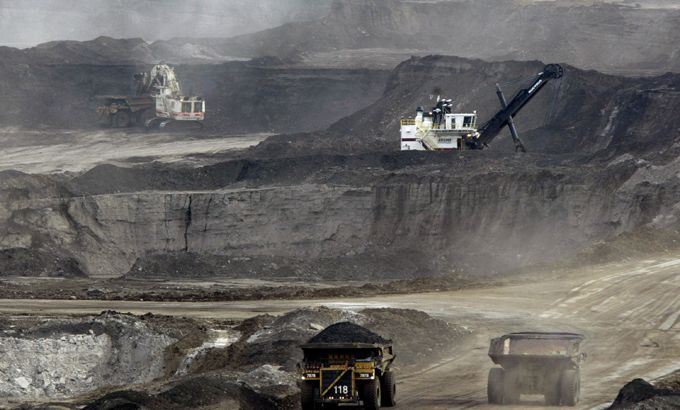
Canada’s ‘war on science’
Environmental groups say recent measures show that Harper’s government is stepping up its attack on climate scientists.
Canadian campaigners are calling it a “war on science” – a slow and systematic unravelling of environmental and climate research budgets under the Conservative government of Stephen Harper.
Hundreds of researchers have lost their jobs, with those remaining reportedly forbidden from talking to the media without a government minder.
Keep reading
list of 4 itemsTurtles swimming to extinction in Malaysia as male hatchlings feel heat
Could shipping containers be the answer to Ghana’s housing crisis?
Thousands protest against over-tourism in Spain’s Canary Islands
The government says the cuts are part of a wider, deficit-reducing austerity programme.
But green groups instead accuse Harper of trying to stifle criticism of Canada’s development of its oil sands fields in Alberta which hold huge reserves.
|
“The climate policy in Canada is actually getting much weaker, and it’s no secret that this is all in the name of protecting the tar sands industry … [which] is becoming a major barrier to Canada being a climate leader.” – Danielle Droitsch, the Natural Resources Defense Council |
On Friday, Canada gave the go-ahead for a $15.1bn takeover by Chinese state-owned oil firm, CNOOC, of Canadian company Nexen to develop the fields.
Environmentalists say it is this desire to extract the oil from the tar sands that is driving Canadian government policy.
In recent years, Harper has weakened green regulations and pulled Canada from the Kyoto Protocol, the global treaty to limit greenhouse gas emissions.
Environmental groups say the government has stepped up its attack on climate scientists in recent months, as seen by some of the measures taken so far:
- The elimination of the National Round Table on the Environment and the Economy, a body that for years urged the government to take more action on climate change
- Slashing funding for more than a dozen research stations that monitor greenhouse gas and other pollutants
- The non-profit Canadian Foundation for Climate and Atmospheric Sciences lost all its government funding since Harper took office in 2006; several other climate study bodies also suffered budget cuts
- Nature magazine reported that 12,000 government jobs, including thousands of scientists, will be affected by the latest cuts
Last week, the Climate Action Network, a leading environmental group, ranked Canada as the worst performer in the developed world when it comes to climate change policies, coming in at 58th out of 61 countries measured.
It led Greenpeace to describe Canada as “the poster child of climate inaction”.
Inside Story Americas asks: How bad is Canada when it comes to climate change? Is Harper’s government recklessly fixated on developing its Alberta oil sands?
To discuss this with presenter Kimberly Halkett are guests: Danielle Droitsch, the director of the Canada Project at the Natural Resources Defense Council; and PJ Partington, a policy analyst from the climate change programme at the Pembina Institute.
Several pro-government and business groups, including the Canadian environment minister’s office, declined Al Jazeera’s invitation to join the panel discussion.
|
“[A] number of internal studies from Environment Canada … show that once they [the government] put these screens in place where media requests have to be shepherded through a certain communications office, the amount of interviews dropped by about 80 per cent.” PJ Partington, a policy analyst at the Pembina Institute |
CANADA’S FOCUS ON DEVELOPING ITS OIL SANDS:
- With more than 170 billion barrels the province of Alberta has the world’s third-largest oil reserves after Saudi Arabia and Venezuela
- Current production is around 1.5 million barrels a day, and this is expected to increase to 3.7 million in 2025
- By 2035, the oil sands could generate $2.1tn in economic activity
- But extracting and processing the fuel creates 20 per cent more greenhouse gas emissions than drilling for conventional oil
- It also causes significant environmental problems – the process of removing bitumen which is eventually processed into gas – pollutes and depletes the watershed
- It also releases large volumes of pollutants into the air and clear-cutting of the boreal forests is required where shale is mined